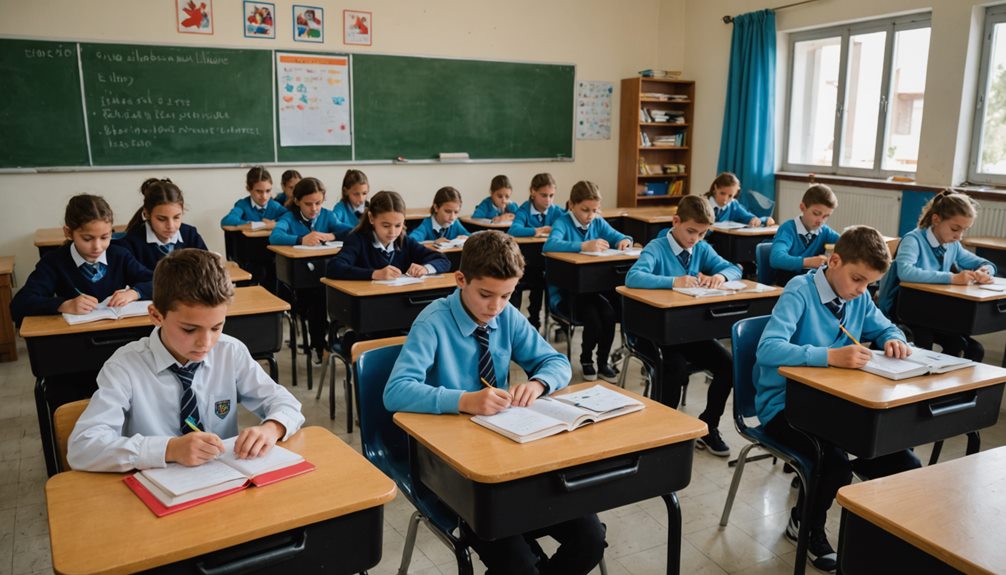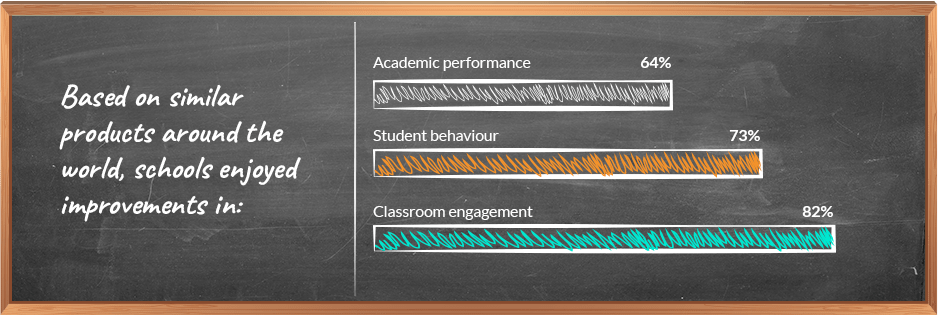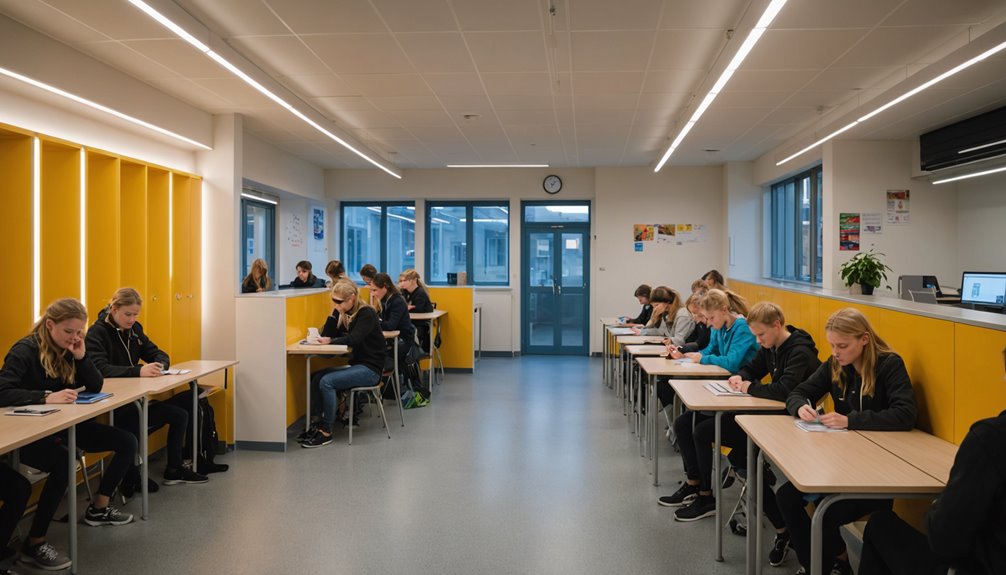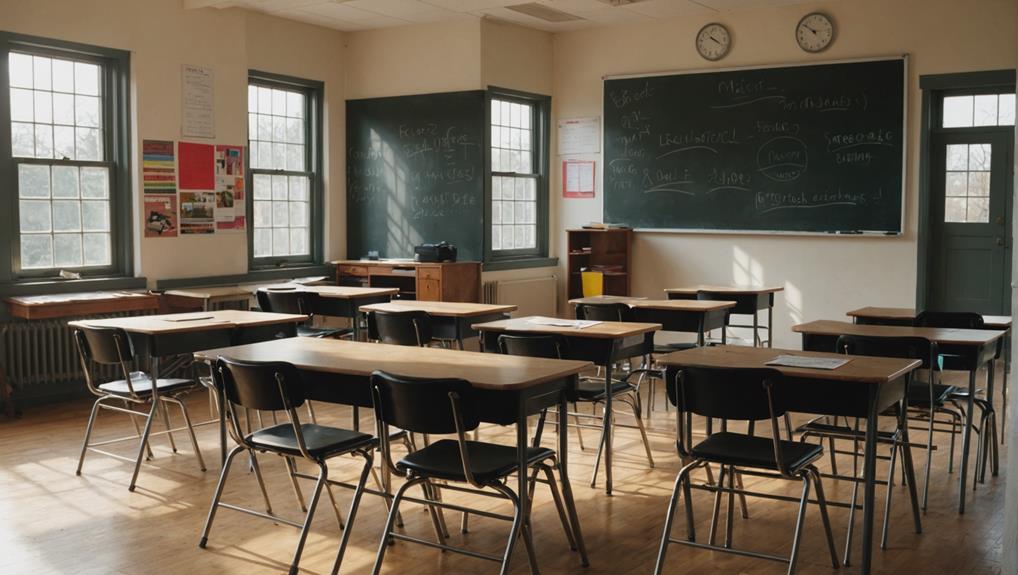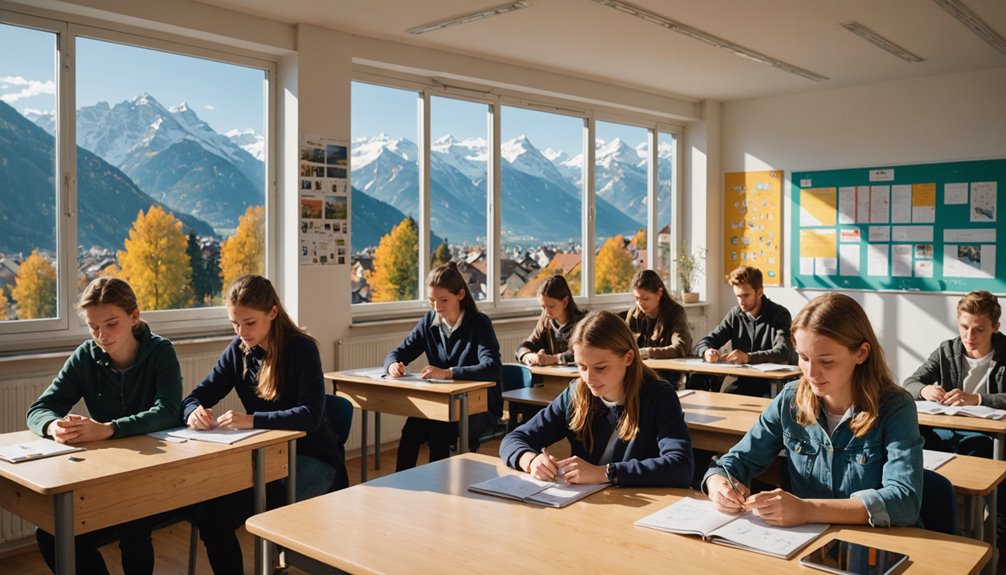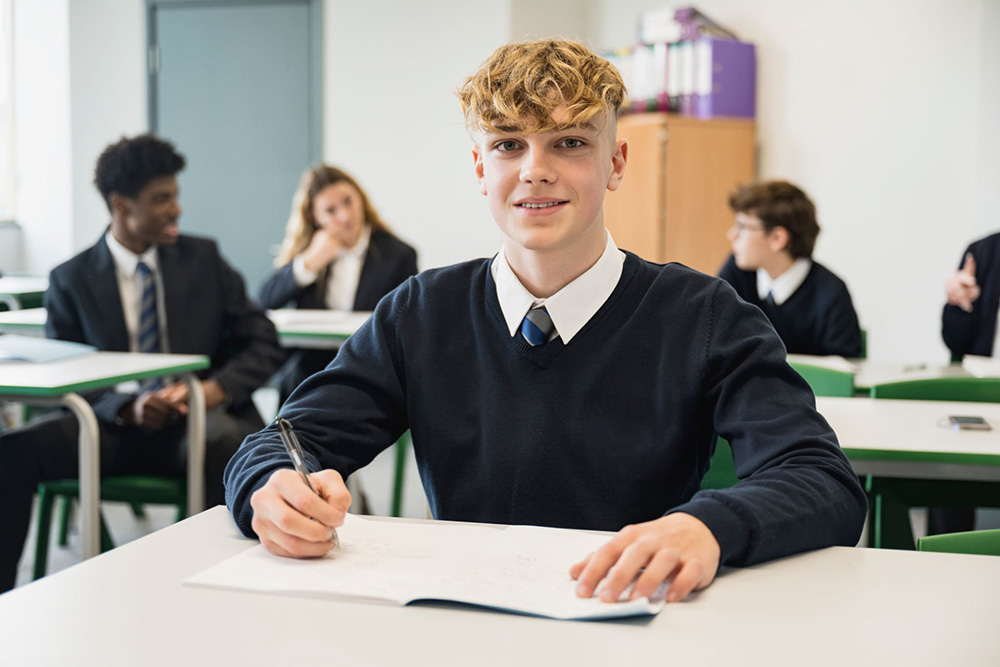Les écoles albanaises ont introduit un interdiction de téléphone portable visant à améliorer l’expérience d’apprentissage en favoriser la discipline et améliorer les résultats scolaires. Cette évolution reflète une tendance mondiale à reconsidérer le rôle de la technologie mobile dans l'éducation. la mise en œuvre présente des défis, comme les difficultés d'application et l'équilibre entre les responsabilités pédagogiques et disciplinaires des enseignants. Les réactions varient, les parents s'inquiétant de l'accessibilité, tandis que les élèves et les enseignants débattent de l'impact de la politique sur l'engagement et dynamique de classeUne application efficace nécessite une communication ouverte et une surveillance stratégique. Exemples internationaux Des exemples comme la Grèce et la Macédoine du Nord offrent un aperçu des différentes approches. Il existe de nombreuses autres informations sur leur efficacité et leurs implications.
Points clés à retenir
- L’interdiction du téléphone dans les écoles albanaises vise à améliorer l’expérience éducative et à améliorer les résultats scolaires.
- Les défis liés à la mise en œuvre de la politique comprennent des ressources limitées, un engagement variable des enseignants et des lacunes potentielles dans son application.
- Le personnel ramasse les téléphones aux entrées des écoles pour minimiser les distractions et assurer la conformité.
- L’implication des parents est essentielle pour une application efficace et l’alignement des perspectives sur l’utilisation du téléphone avec les politiques scolaires.
- Cette politique reflète une tendance mondiale de réévaluation de l’utilisation du téléphone mobile dans les milieux éducatifs.
Interdiction des téléphones portables dans les écoles albanaises
L’Albanie a introduit une interdiction des téléphones en classe en 2018, ciblant à la fois les élèves et les enseignants de toutes les écoles primaires et secondaires. Cette politique a été conçue pour répondre aux préoccupations croissantes concernant les distractions en classe et la surutilisation des appareils mobiles pendant les cours. Le ministère de l'Éducation a voulu créer un environnement d'apprentissage ciblé en limitant l’influence des téléphones sur les performances scolaires et le comportement social des étudiants.
L'interdiction interdit strictement la utilisation des téléphones portables pendant les cours, les mêmes règles s'appliquant aux enseignants et aux élèves. L'objectif principal est d'éliminer les perturbations inutiles et de veiller à ce que la salle de classe reste un lieu d'apprentissage.
Principaux objectifs de l’interdiction :
- Minimiser les distractions:Les téléphones sont considérés comme un obstacle majeur à la concentration des étudiants.
- Améliorer le comportement en classe:En supprimant les téléphones, la politique vise à favoriser un meilleur engagement entre les étudiants et les enseignants.
- Promouvoir l’équité:Les téléphones étant supprimés, les étudiants ne se sentent plus obligés de rivaliser pour obtenir les appareils les plus récents.
Bien que la politique définisse des règles claires, mise en œuvre incohérente et la résistance culturelle ont limité son succès, ce qui en fait un sujet de débat permanent.
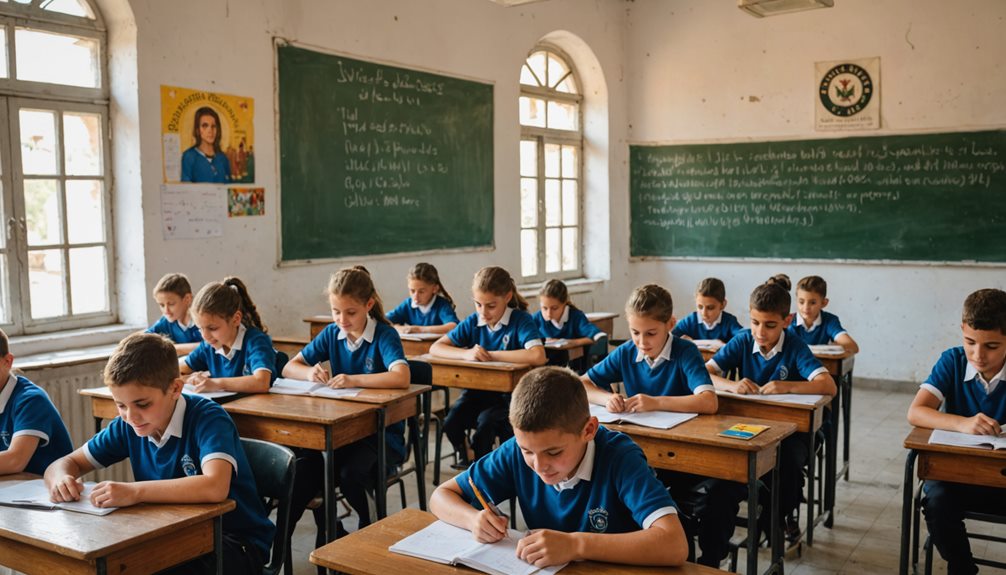
Comment la politique est appliquée dans les écoles
L'application de l'interdiction du téléphone en Albanie est basée sur les directives actualisées du ministère de l'Éducation, qui garantissent un environnement d'apprentissage sans téléphone dans les écoles. Ces règles s'appliquent strictement aux élèves et l'école les fait respecter par le biais de procédures claires et de la participation des parents.
Principales mesures d’application :
- Obligation de laisser les téléphones à la maison : Selon les dernières instructions, les étudiants doivent venir à l'école sans téléphone portableL’école a informé tous les parents et les a chargés de veiller à ce que leurs enfants respectent ces règles.
- Confiscation et peine de longue durée : Si un élève est trouvé avec un téléphone à l'intérieur de l'école, l'appareil est immédiatement confisqué et remis au directeur de l'école. Les téléphones confisqués sont restitués à l'élève seulement à la fin de l'année académique, soulignant la gravité de la règle.
- Aucune exception sans approbation : La politique interdit strictement les téléphones portables dans les locaux de l'école, sauf dans cas particuliers, comme les besoins liés à la santé. Ces exceptions nécessitent une approbation préalable de la direction de l'école.
- Conformité des enseignants :Les enseignants doivent respecter l'interdiction et ne peuvent pas utiliser de téléphones pendant les cours, garantissant ainsi la cohérence avec les règles des élèves.
- Sensibilisation et soutien aux parents : Les parents ont été informés de la mise à jour de la politique et sont censés jouer un rôle actif pour s'assurer que leurs enfants laissent leur téléphone à la maison. Le ministère met l'accent sur la collaboration entre les écoles et les familles pour que l'application de la loi soit efficace.
Ces mesures témoignent d’une approche plus stricte pour empêcher que les téléphones ne perturbent l’apprentissage. En mettant l’accent sur la prévention et des sanctions strictes, le ministère vise à faire respecter cette politique dans toutes les écoles.
Raisons de l'interdiction
Ces dernières années, les décideurs politiques en Albanie ont les téléphones portables interdits dans les écoles à améliorer l'expérience éducative et améliorer les résultats scolaires. Cette initiative vise à atténuer l’impact négatif sur l’éducation L'interdiction de l'utilisation des téléphones portables permet aux élèves de rester concentrés pendant les cours. Cette interdiction vise à favoriser un environnement de classe plus discipliné en supprimant les distractions associées aux appareils mobiles, favorisant ainsi un apprentissage efficace.
L'accent sur discipline en classe fait partie intégrante de l'interdiction, car elle répond au besoin croissant des étudiants de s'engager pleinement dans leurs activités éducatives sans l'interférence des appareils numériques. Cette mesure devrait influencer positivement les performances académiques en encourageant les étudiants à se concentrer sur leurs études et à participer activement aux discussions en classe.
En outre, l’interdiction s’aligne sur une Tendance mondiale des établissements d'enseignement réévaluer les politiques d'utilisation des téléphones portables. L'Albanie rejoint de nombreux pays adaptant les écoles à besoins d'apprentissage modernes. Cette initiative donne la priorité à la concentration des étudiants et à la réussite scolaire, inspirant réforme de l'éducation mondiale.
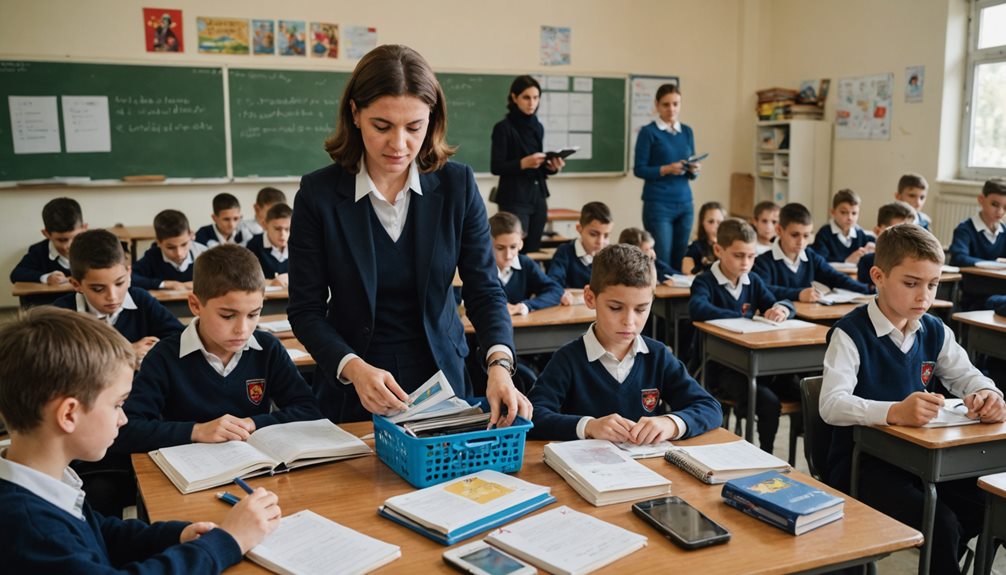
Réactions et opinions du public
Comment les différentes parties prenantes perçoivent-elles la interdiction de téléphone portable dans les écoles albanaises ? Les inquiétudes des parents sont apparues, certains appréciant l'accent mis sur avantages académiques et dynamique de classe, tandis que d’autres s’inquiètent accessibilité réduite à leurs enfants.
Les points de vue des étudiants varient. Certains voient le potentiel engagement accru, tandis que d’autres se sentent limités par l’interdiction des technologies essentielles à l’apprentissage moderne.
L'interdiction a suscité un débat important sur les réseaux sociaux. Ses partisans estiment qu'elle améliore l'éducation en réduisant les distractions, alors que les critiques craignent que cela puisse nuire aux étudiants culture numérique.
Les enseignants partagent des expériences mitigées : certains constatent une meilleure concentration en classe, tandis que d’autres ont du mal à impliquer les élèves sans outils numériques.
Le succès de cette interdiction repose sur une application stricte et sur un équilibre entre l'enseignement traditionnel et des outils pédagogiques innovants. Les parties prenantes surveillent de près son impact à long terme sur les résultats scolaires des étudiants et leur expérience d'apprentissage globale.
Comment d'autres pays gèrent les téléphones dans les écoles
Les pays du monde entier gèrent l'utilisation du téléphone dans les écoles différemment, en fonction de leurs valeurs culturelles et de leurs priorités éducatives. France, un interdiction nationale des téléphones portables a été introduite en 2018 pour les élèves du primaire et du secondaire afin de réduire les distractions et de favoriser la concentration, avec des exceptions autorisées uniquement pour des raisons de santé ou d'éducation. Grèce impose une interdiction stricte sur tous les appareils électroniques dans les écoles pour minimiser les perturbations, favorisant un environnement d’apprentissage sans distraction.
En revanche, des pays comme Macédoine du Nord et le Royaume-Uni adopter une approche plus flexible, permettant aux écoles individuelles de définir leurs propres politiques en matière de téléphonie. Alors que de nombreuses écoles britanniques interdisent les téléphones pendant les cours mais autorisent une utilisation limitée pendant les pauses, Macédoine du Nord donne aux écoles l'autonomie nécessaire pour décider en fonction des besoins et des circonstances locales. États-Unis, les politiques vont de l'interdiction totale à l'utilisation supervisée à des fins éducatives, avec des outils tels que Pochettes Yondr ou pochettes Phonelocker utilisé pour verrouiller les téléphones pendant les cours.
Pendant ce temps, des pays comme Suède et Japon Les téléphones portables doivent être intégrés dans le processus éducatif selon des règles strictes. En Suède, les enseignants intègrent les appareils mobiles dans les cours, tandis qu'au Japon, ils n'autorisent l'utilisation des téléphones qu'en cas d'urgence ou pour des utilisations spécifiques approuvées. Ces approches variées reflètent le défi plus vaste consistant à trouver un équilibre entre les avantages potentiels de la technologie et le besoin de discipline et de concentration dans l'éducation.
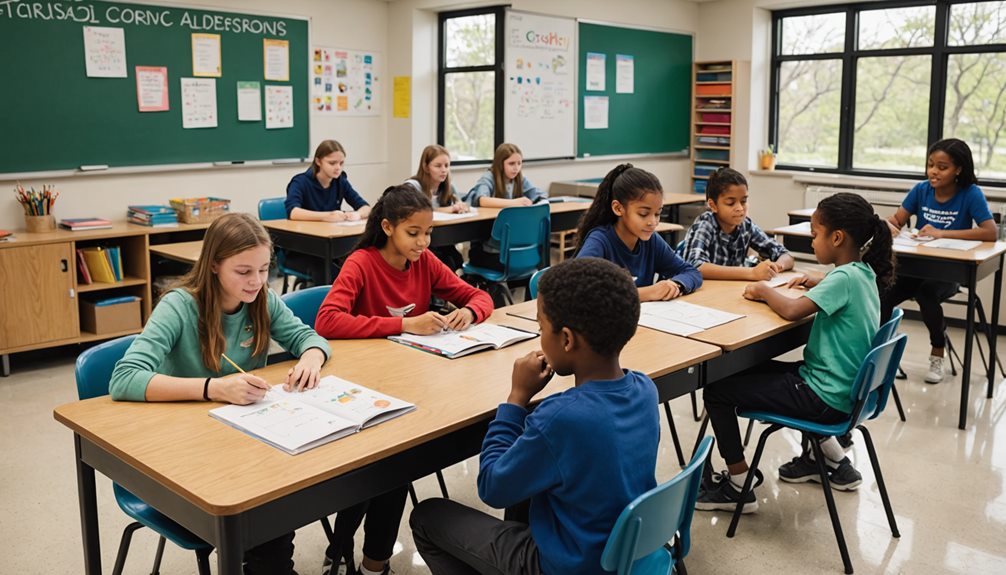
L’interdiction du téléphone est-elle la meilleure solution ?
Pour évaluer si une interdiction du téléphone améliore l’éducation dans les écoles albanaises, il faut analyser ses avantages et ses inconvénients. Bien qu’elle vise à stimuler performance académique en réduisant les distractions, cela suscite également un débat sur étudiant autonomey et intégrer la technologie dans l'éducation.
Tenez compte des aspects suivants :
- Participation des parents:Engager les parents dans des discussions sur l’utilisation appropriée du téléphone pourrait compléter l’interdiction. Les parents peuvent renforcer les consignes à la maison, en veillant à ce que les habitudes numériques soient en phase avec les objectifs éducatifs.
- Autonomie des étudiants:Limiter l'accès au téléphone peut entraver la capacité des élèves à autoréguler l'utilisation des technologies, une compétence essentielle à l'ère numérique actuelle. Encourager une utilisation responsable du téléphone pourrait mieux préparer les élèves aux défis futurs.
- Dynamique de la classe:Si un environnement sans téléphone peut réduire les perturbations, il peut également restreindre l’utilisation d’applications éducatives qui favorisent l’apprentissage interactif et la collaboration. Il est essentiel de trouver un équilibre entre discipline et innovation.
- Intégration technologique:Les écoles pourraient envisager d’intégrer la technologie dans les programmes scolaires, en utilisant les téléphones comme outils pédagogiques plutôt que comme distractions. Cette approche pourrait améliorer les expériences d’apprentissage et renforcer l’engagement.
Une stratégie globale combinant ces éléments pourrait être plus efficace qu’une interdiction générale, en alignant l’éducation sur les exigences numériques d’aujourd’hui.
Questions fréquemment posées
Les enseignants rationaliseront les procédures d'urgence grâce à des plans de communication établis, à une supervision renforcée et à l'utilisation des ressources de l'école. La participation des parents est essentielle, car elle garantit la sécurité des élèves et facilite les réponses efficaces aux situations d'urgence sans avoir recours aux téléphones portables dans les salles de classe.
Environ 101 élèves sur 3 ont besoin d'une exemption médicale pour l'utilisation du téléphone. La communication avec les parents est importante pour aborder les aménagements d'apprentissage tout en surveillant le respect des règles. Ces exemptions sont essentielles pour garantir que l'impact de l'interdiction sur l'éducation reste positif et inclusif.
Les établissements d’enseignement explorent des alternatives technologiques en classe pour remplacer les applications pédagogiques mobiles et améliorer les ressources d’apprentissage. Ces innovations renforcent l’engagement des élèves et leurs résultats scolaires tout en aidant les enseignants à les intégrer dans le programme.
La salle de classe est un jardin ; il est essentiel de cultiver la culture numérique et les compétences technologiques. Si la réduction des distractions peut améliorer les résultats scolaires, une réflexion approfondie sur la citoyenneté numérique et les méthodes innovantes est essentielle pour maintenir l’engagement des élèves et l’impact éducatif.
Cette restriction peut initialement mettre à mal la communication entre les parents et favoriser l’indépendance des élèves. Tout en réduisant les distractions en classe et en stimulant les interactions sociales, elle nécessite des moyens alternatifs pour assurer la sécurité des élèves et maintenir la communication en cas d’urgence.
Conclusion
Le interdiction de téléphone portable dans les écoles albanaises reflète une tendance mondiale vers la minimisation distractions numériques, visant à améliorer les résultats scolaires. Une statistique intéressante révèle que les étudiants peuvent passer jusqu'à cinq heures par jour sur leur téléphone, ce qui affecte grandement performance académiqueEn interdisant l'utilisation du téléphone, cette politique vise à améliorer la concentration, la discipline et interactions élèves-enseignantsMalgré les difficultés d’application, ces mesures pourraient constituer un précédent précieux pour les écoles du monde entier.



